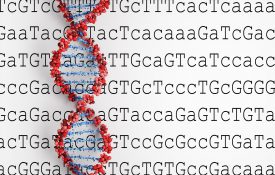-
Conscious vs. Unconscious Thought in Making Complicated Decisions
When faced with a difficult decision, we try to come up with the best choice by carefully considering all of the options, maybe even resorting to lists and lots of sleepless nights. So it may be surprising that recent studies have suggested that the best way to deal with complex decisions is to not think about them at all—that unconscious thought will help us make the best choices. Although this may seem like an appealing strategy, new research in Psychological Science, a journal of the Association for Psychological Science, cautions that there are limitations in the efficacy of unconscious thought making the best decisions. Duke University researchers John W.
-

The Effect of Parental Education on the Heritability of Children’s Reading Disability
A twin study suggests a significant interaction between parents’ years of education and the heritability of reading disability.
-
Racial Tension in a “Split-Second”
Interracial and interethnic interactions can often be awkward and stressful for members of both majority and minority groups. People bring certain expectations to their interactions with members of different groups—they often expect that these interactions will be awkward and less successful in establishing positive, long-lasting relationships than interactions with members of one’s own racial or ethnic group.
-

Why We Procrastinate and How To Stop
Research suggests that people who thought about a task in abstract terms were more likely to put it off.
-
Using Challenging Concepts to Learn Promotes Understanding of New Material
It’s a question that confronts parents and teachers everywhere- what is the best method of teaching kids new skills? Is it better for children to learn gradually, starting with easy examples and slowly progressing to more challenging problems? Or is it more effective to just dive-in head first with difficult problems, and then move on to easier examples? Although conventional wisdom suggests that the best way to learn a difficult skill is to progress from easier problems to more difficult ones, research examining this issue has resulted in mixed outcomes. University of California, Santa Barbara psychologists Brain J. Spiering and F.
-
Study Indicates How We Make Proper Movements
When you first notice a door handle, your brain has already been hard at work. Your visual system first sees the handle, then it sends information to various parts of the brain, which go on to decipher out the details, such as color and the direction the handle is pointing. As the information about an object is sent further along the various brain pathways, more and more details are noticed—in that way, a simple door handle turns into a silver-plated-antique-style-door-handle-facing-right.

